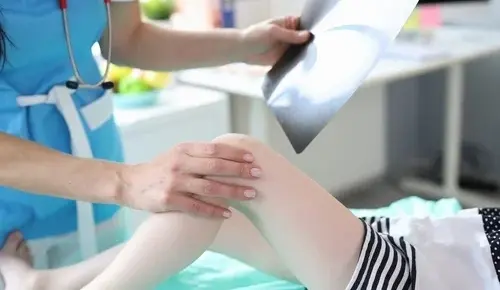Risks and Limitations of Bone Age Study at Pediatric Clinic DRHC Dubai
A. Possible risks of the procedure
A bone age study is a relatively safe diagnostic test that uses X-ray imaging to evaluate the maturity of a child's bones. The procedure is non-invasive, painless, and usually takes around 20-30 minutes. However, as with any medical procedure, there are some risks and potential side effects associated with a bone age study.
The main risk associated with a bone age study is exposure to ionizing radiation from X-ray imaging. However, the amount of radiation used in a bone age study is low, and the risk of harm from this exposure is small.
B. Limitations of bone age study
The bone age study is a diagnostic test that can provide important information about a child's bone development and growth. However, it has some limitations. For instance, it is based on the assumption that the child's bone development follows a specific pattern. In some cases, the bone development may deviate from the standard pattern, and the result may not be accurate.
Additionally, the bone age study is based on a comparison of the child's X-ray with a standardized set of X-ray images of bones at different stages of development. This comparison is subjective, and the results may vary depending on the radiologist or Pediatric endocrinologist interpreting the images.
Furthermore, the bone age study is not always a definitive diagnosis, and it may need to be combined with other tests and assessments to provide a complete picture of a child's growth and development. For example, hormonal tests, physical examinations, and medical history may be needed to confirm the results of a bone age study.
In some cases, the bone age study may not be able to determine the cause of a growth disorder or delay. In these cases, further testing and assessments may be needed to identify the underlying issue. For example, genetic testing, imaging studies, or biopsy may be required to diagnose certain conditions that affect bone development.
Things You may also like to know:
- Types of Bone Age Study
- Preparations of Bone Age Study
- Interpretations of Bone Age Study
- Indications of Bone Age Study
.png?width=281&height=59&name=bookanappointment%20(1).png)
Dubai Pediatric Clinic at Dr. Rami Hamed Center provides one of the leading pediatricians in Dubai. Please call +97142798200 to book an appointment today with us!




.png?width=281&height=59&name=bookanappointment%20(1).png)
.webp?width=1080&height=1080&name=Doctor%20background%20For%20Website%20Dr.%20Manaal%2002%20(1).webp)
